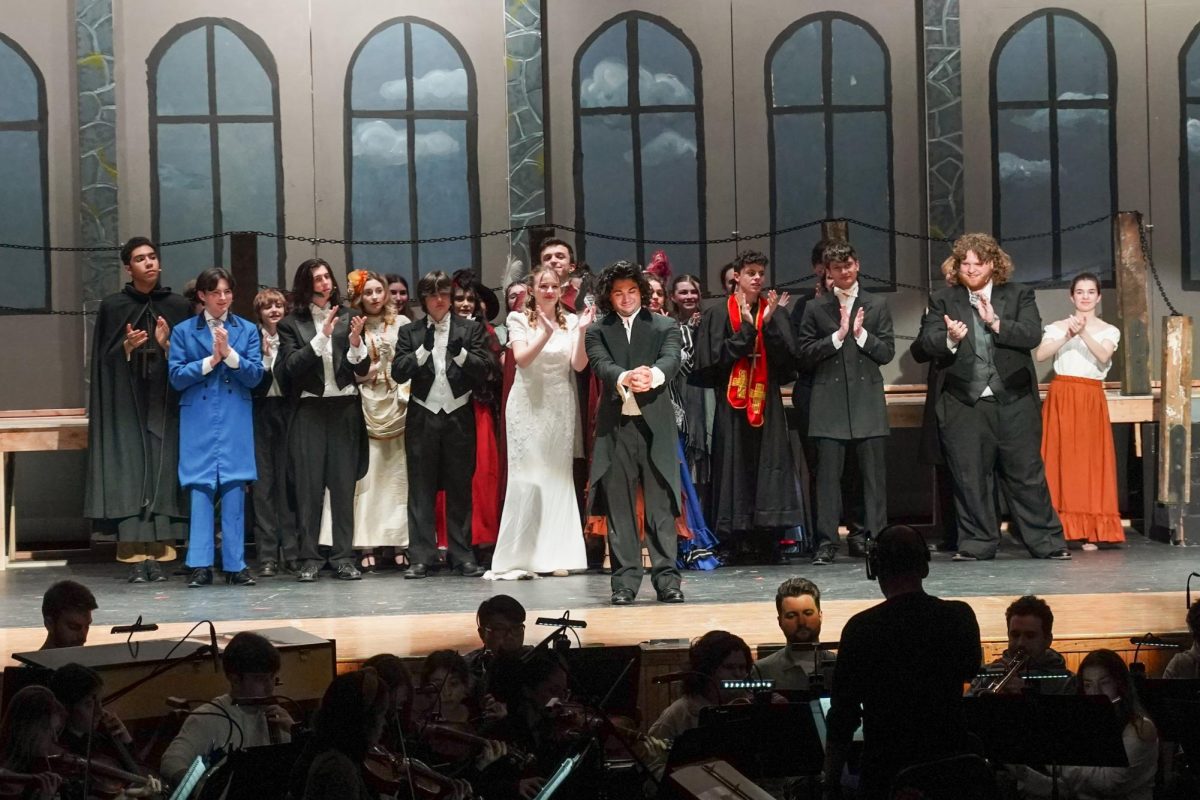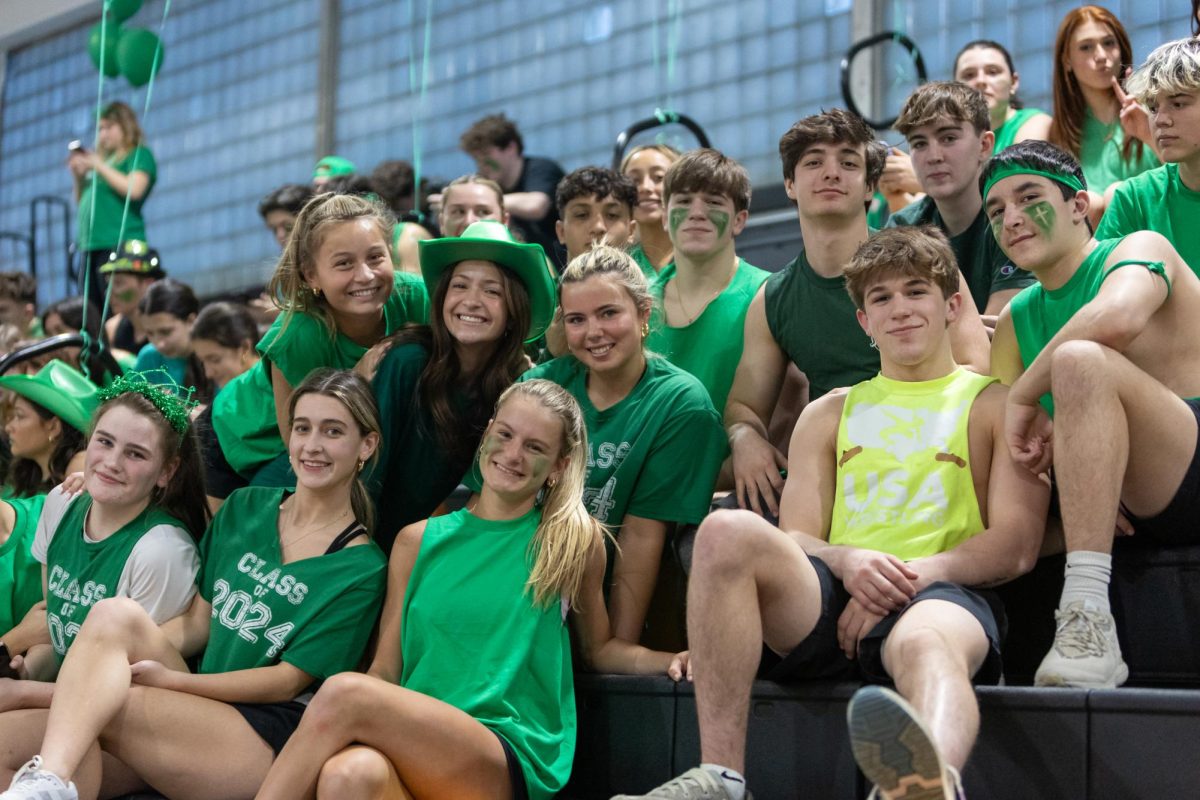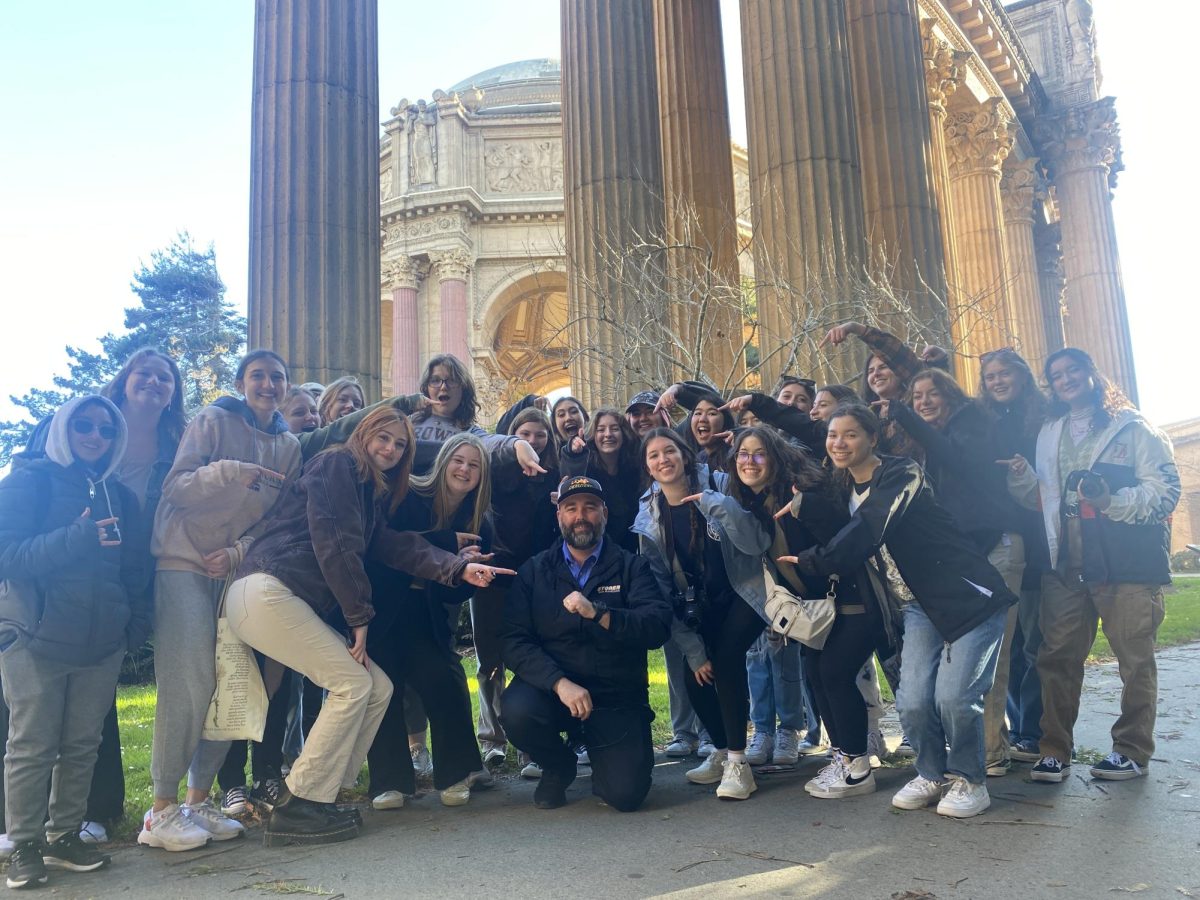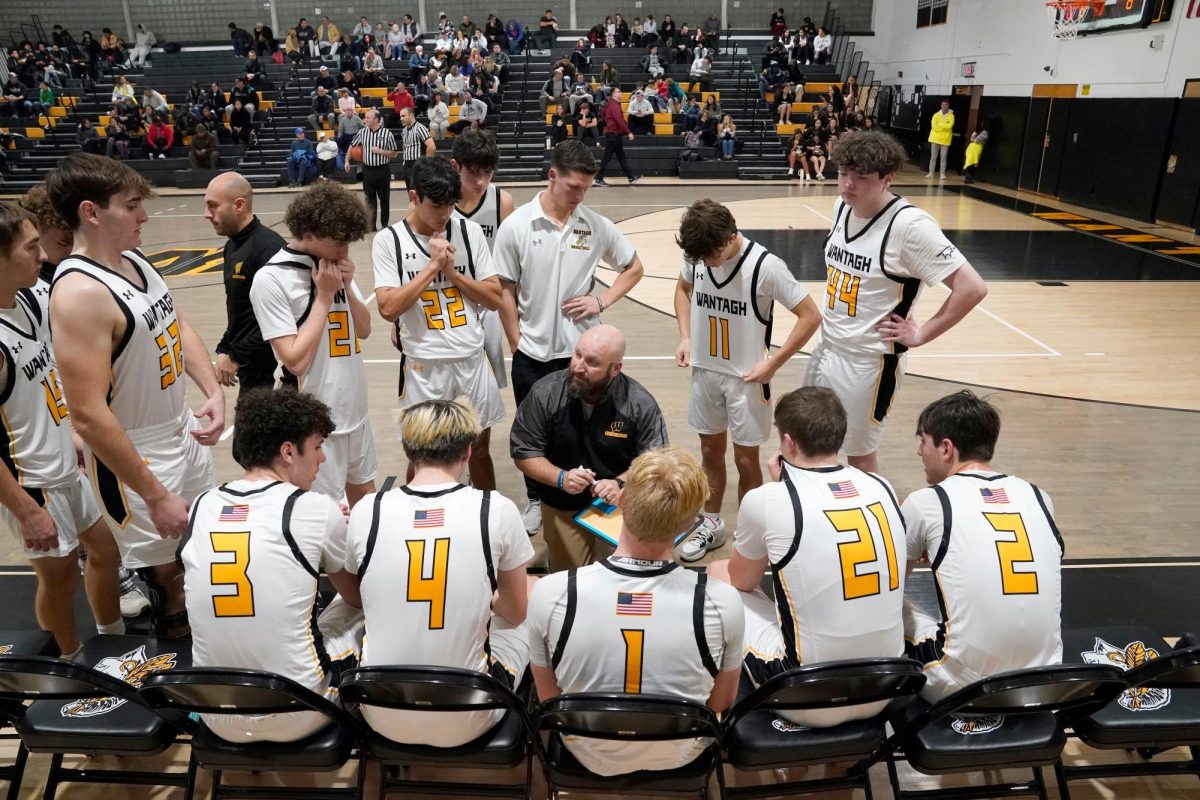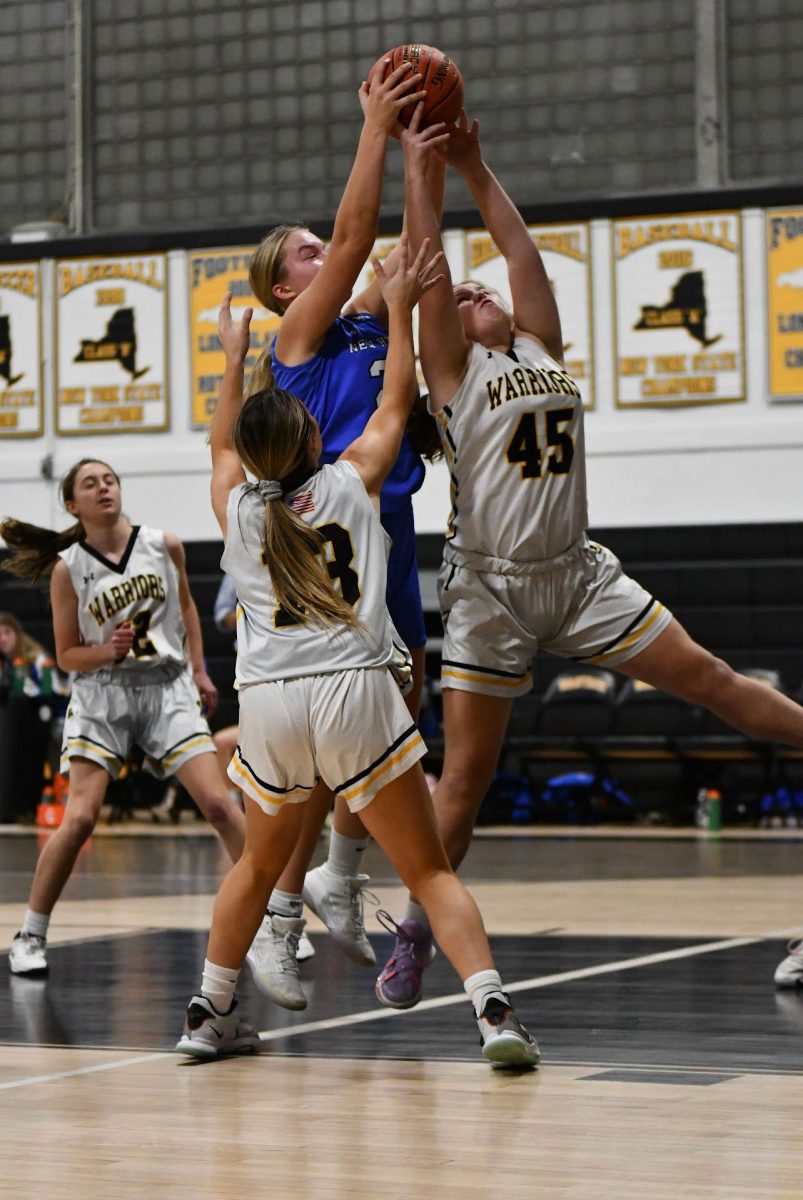Who Will Be Our Next President?
September 17, 2015
A wealthy businessman and a brain surgeon are dominating over experienced politicians. A whopping seventeen Republicans have announced their goal of making the nomination. If elected, one of these two popular candidates, Donald Trump or Bernie Sanders, will become the oldest president in American history to take office, at 70 and 75, respectively. Hillary Clinton would also be a few months short of breaking Ronald Reagan’s record as the oldest president, but she would be close nonetheless.
Indeed, the race for the nomination is setting many records and changes the likes of which America has never seen before. There is still over a year to go before the official election, and we’ve already heard so many announcements from the politicians hoping to snag one of the most powerful positions in the world.
From the start, around spring 2015, many Americans figured it would come down to a few Republicans – most likely Jeb Bush, Rand Paul, or Ted Cruz, who at the time had high approval ratings – for the nomination, while Hillary Clinton would easily triumph over whatever Democrat dared go against her, quickly claiming the ticket.
But in a few months, things got complicated.
In May, Benjamin S. Carson announced he would throw his figurative hat into the ring. However, Ben had no experience in politics – he never served a term in the Senate or the House, and he had no gubernatorial or mayoral work under his belt. Instead, Ben Carson was an experienced neurosurgeon, recognized as being the first to separate two Siamese twins.
Business magnate Donald Trump, who mulled over a presidential run in 2012, publically announced his run for 2016 in June. He was immediately met with the support of millions of his fans, and gradually increased his supporter count. By the time summer officially rolled around in July, he was leading the Republican polls.
Another fairly popular non-politician running Republican is Carly Fiorina who, like Trump, has had business experience rather than government experience. Originally trailing in the polls, she has taken up a bit of a lead as of mid-September, possibly due to her extensive knowledge about the Middle East which likely left many Americans pleasantly surprised.
Other Republicans doing well for themselves in the polls include Jeb Bush, previous governor of Florida, son of 41st U.S. president George H. W. Bush, and brother of 43rd U.S. president George W. Bush. Ted Cruz, another popular candidate, may be a senator, but he is a firm critic of the government. Marco Rubio is a younger and more eager Republican candidate who is described to bring a smile to conservatism.
Donald Trump’s support is not the only thing rising. The election is already getting heated with all sorts of drama, including a scandal involving Hillary Clinton.
Trouble arose when hundreds of deleted emails traced back to the past secretary of state, who was thought to dominate the Democratic nomination, were discovered. Most were mere personal messages or quick responses dating back to her time as Secretary of State (from 2009 to 2013) – but it wasn’t the emails themselves that were troubling. It was the fact that Hillary was using a personal email on a privately-owned email server. This was a major blow to her credibility, and it seemed Hillary was starting to suffer as a candidate.
While one Democrat suffered, though, another rose to dominance.
Bernie Sanders, who announced his candidacy in late May, will be 75 years old if he becomes president, nearly 80 if he were to win and finish a term, but his age does not seem to be holding him back at all.
He is extremely progressive, and he vows to put an end to sexism, racism, unfair distribution of wealth, pollution and overuse of the environment, corruption on Wall Street, and a few other issues, a shockingly large amount of claims. He has definitely won the support of America’s youth, with war cries of teenagers on Twitter, Reddit, Tumblr, and other social media websites letting the other candidates know they will “feel the Bern.”
Shockingly, Hillary Clinton and Bernie Sanders seem to be the only Democratic candidates that seem to be doing exceptionally well in the polls. For a while, a shadow loomed over their heads – Vice President Joe Biden, who many expected to jump into the race – but ultimately his decision was not run. Due to the death of his son Beau from cancer in May, Biden spent much of his time grieving and thinking, before finally admitting he had missed his window and would not run in mid-October.
Drama arose once again in the political community in early September, when Jeb Bush and Donald Trump began to butt heads. Bush claimed Trump was “not the conservative he claimed to be,” citing Trump’s longstanding support for the Democratic party (Trump himself said he “identifies more as a Democrat”), and his support for increased taxes. Since virtually all of the Republicans running for the nomination classify themselves as conservatives, this may damage Trump’s reputation in the political sphere.
This isn’t the first time Trump has been alienated by his fellow Republicans. Before September, he fully supported the idea of running independently from both parties. The problem with this is that the Republican votes would be divided, all but confirming a Democratic win. Trump finally pledged his loyalty to the Republicans on September 3rd, presumably causing all Republican candidates to breathe simultaneous sighs of relief.
Questions buzz in the minds of Americans. Who will win? Can we even predict who will win? The truth is, there is much evidence suggesting who will win – but the evidence is for both sides.
A Republican may take the White House since a lot of conservatives are angered by many of Barack Obama’s decisions, and definitely will not vote a Democrat into office since most of them are more liberal than conservative. Donald Trump has been dominating the polls, but if his moxie proves to be too much and he loses enough support, the seat could possibly go to Dr. Ben Carson, who is doing very well in the polls as of early September. Jeb Bush, an experienced member of the politically prominent Bush family, Marco Rubio, a younger and more enthusiastic conservative gradually working his way up in the polls, and Carly Fiorina, a quiet but calculating woman who served as a CEO in the past, also have decent chances of snagging the spot.
Surprisingly, though, a Democrat has a nice chance of winning the election as well. As was previously mentioned, America’s youth is showing increased interest in politics. Many teenagers and college students argue that the voters with the biggest effect on the election are the baby boomers, voting since the late 1960s. The fired-up youth argue that these baby boomers are predominately conservative Republican, and many young Americans are calling upon their fellow 18-21-year-olds to “take back the country” from the baby boomers, electing their candidate of choice, Bernie Sanders. In fact, the majority of Sanders’ support comes from the young people of America, and it is possible that this support could get Sanders into office.
Hillary Clinton also has a chance, but almost all of her support comes from those who were rooting for her in the Senate and for the presidential election of 2008. Luckily for her, this support comes from quite a lot of people, but she and Sanders have reached some sort of tie in the polls, competing neck-and-neck to become the most well-liked Democratic candidate.
Many Wantagh High School seniors will be able to vote in the election, as they will be 18 years old by the time November 2016 rolls around. Will they follow the direction many young Americans seem to be taken and vote Bernie Sanders, or perhaps another Democrat, into office? Will they follow the direction of prominent Republicans in their lives – possibly a family member or family friend, which there are no shortage of due to long Island’s longstanding Republican majority – and vote Republican? Or will they be old enough to do research and read about the views of the prominent candidates, and formulate their own opinion?
As we become more and more interested in politics, the third option is probably the most likely.
Indeed, this presidential election is doing things quite differently than older Americans will remember they were done in the past, but there is something that won’t change, and that’s that there will eventually be a Republican and a Democrat to choose from. Who it is remains to be confirmed, but one thing is for sure – for many Wantagh students, it will be the first highly interesting political event of their lives.

